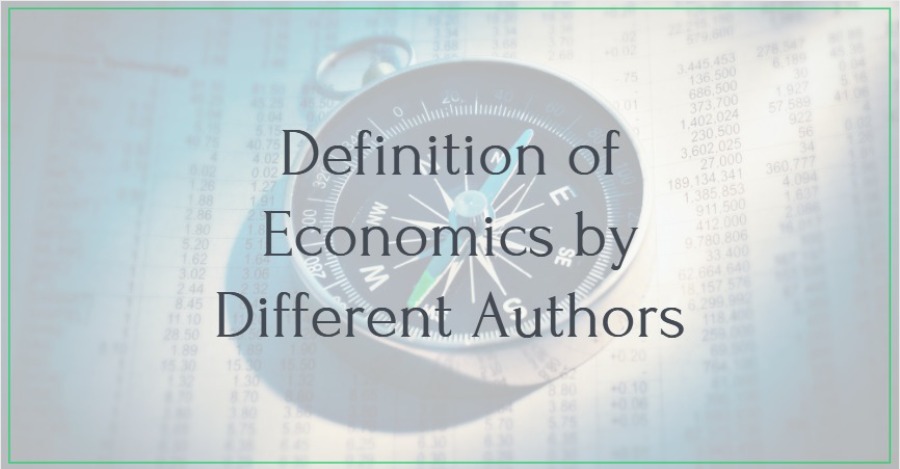Economics is a social science that deals with the production, distribution, and use of goods and services. It studies how individuals, businesses, governments, and countries allocate resources.
Definition of Economics by Different Authors:
According to Adam Smith, “Economics is a science which inquires into the nature and cause of the wealth of nations”.
According to Alfred Marshall, “Economics is a study of mankind in the ordinary business of life; it examines that part of individual and social action which is most closely connected with the attainment and with the use of material requisites of wellbeing.”
Benham defines, “Economics is the study of the factors affecting employment and standard of living.”
According to Harper (2001), “Economics is the social science that analyzes the production, distribution, and consumption of goods and services.”
According to Stonier and Hague, “Economics is fundamentally a study of scarcity and the problems which scarcity gives rise.”
J. B. Saw says, “Economics is the science which deals with wealth.”
According to Walker, “Economics is the body of knowledge which relates to wealth.”
According to J. S. Mill, “Economics is the practical science of production of wealth.”
In the words of Pigou, “Economics is the study of economic welfare as part of the social welfare process.”
Lionel Robbins stated, “Economics is the science which studies human behavior as a relationship between ends and scarce means which have alternative uses.”
Richard Lipsey stated that “Economics is the study of the use of scarce resources to satisfy unlimited human wants.”
“Economics is the study of economies, at both the level of individuals and of society as a whole.” Krugman and Wells, 2004
“Economics is the study of how human beings coordinate their wants and desire, given the decision-making mechanisms, social customs, and political realities of the society.” Colander, 2006
According to Mark Blaug (2007), “economics is the branch of social science that deals with the production and distribution and consumption of goods and services and their management.”
Definition of Economics by Different Authors:
Prof. Paul A Samuelson defines, “Economics is the study of how men and society choose with or without the use of money, to employ the scarce productive resources which have alternative uses, to produce various commodities over time and distribute them for consumption now and in future among various people and groups of society. It analyses the costs and benefits of improving pattern of resource allocation.”
Prof.A.C.Dhas Stated, “Economics is the study of choice-making by individuals, institutions, societies, nations, and globe under conditions of scarcity and surplus towards maximizing benefits and satisfying their unlimited needs at present and future.”
Zeuthen once said, “Economics is an unfinished science.”
According to Von Mises, “It is illegitimate to regard economics as the definite sphere of human action.”
Jacob Viner says, “Economics is what economists do.”
According to Beveridge, “Economics is the study of the general methods which men use to meet their material needs.”
According to Pennon, “Economics is the science of material welfare”
Scitovosky defines, “Economics is a science concerned with the administration of scarce resources.”
According to Harvey, “Economics is the study of how men allocate their limited resources to provide for their wants.”
Read More:
Definitions of Leadership by Different Authors


Leave a Reply